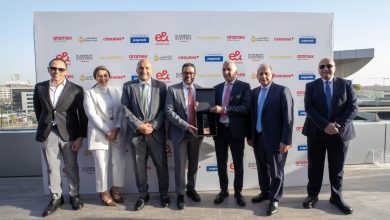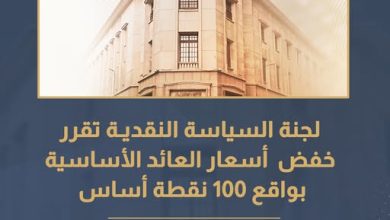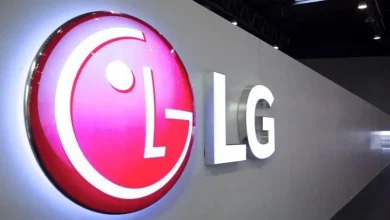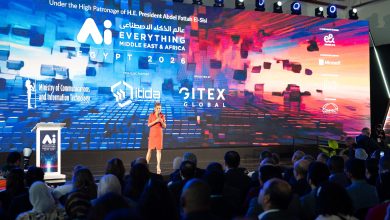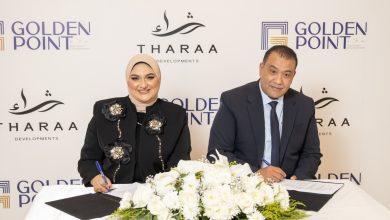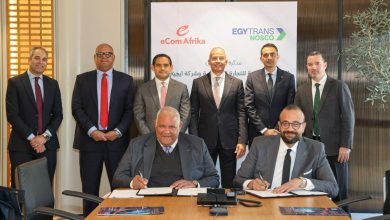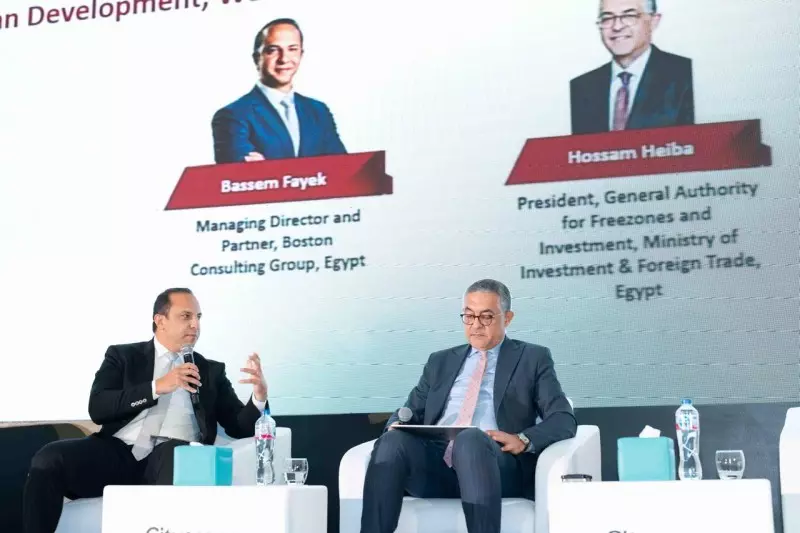
Cityscape Summit 2025 featured a panel discussion titled: “Investing in Egypt’s Multi-Sector investment landscape – From real estate & urban development, wellness, tourism and hospitality to industry and logistics”. The session highlighted the promising investment prospects across multiple sectors within the Egyptian market, providing investors with a comprehensive view of the country’s evolving investment landscape and its future potential.
Cityscape
The panel was moderated by Bassem Fayek, Managing Director and Partner, Boston Consulting Group, with participation from Hossam Heiba, President of the General Authority for Freezones and Investment, Ministry of Investment & Foreign Trade, who discussed the main drivers of investment attractiveness and the incentive policies that support sustainable development, enhance investor confidence, improve the business climate, simplify procedures, and offer competitive advantages aligned with global investment trends.
During the panel, Hossam Heiba confirmed that the economic reforms adopted by the Egyptian government have successfully created an appealing investment environment and given international investors the confidence to enter the Egyptian market. He emphasized that without this shift in the business climate, the current level of foreign investor participation would not have been possible.
Heiba stated that the real estate sector is one of the primary engines of Egypt’s economy, given its significant impact on many other sectors. He highlighted that the state plays an active role in supporting investment by setting clear and effective policies, promoting sustainability through infrastructure development, and empowering the private sector with the tools it needs to participate in development efforts.
He also pointed to the crucial role of real estate in supporting related sectors such as tourism. He explained that increasing the supply of real estate units has a positive effect on tourism activity. Egypt is targeting 30 million tourists, and most hotels are already fully booked, making the expansion of hotel capacity a priority to meet rising demand.
Heiba highlighted a notable shortage of available office space, especially in areas like Downtown Cairo, which presents a promising opportunity for investment and expansion in this vital sector. He noted that Egypt’s development model has evolved beyond its traditional concept to become broader and more inclusive, and that this progress should be leveraged to strengthen Egypt’s real estate export capacity, particularly in light of significant growth in the tourism sector.
In this context, he posed key questions about the steps needed to turn this tourism growth into tangible real estate export opportunities. He identified several critical factors: ease of access to locations, availability of suitable “second home” living options, simplified visa procedures for foreign investors, and easing restrictions on the number of units which foreigners are allowed to purchase.
Heiba reiterated that Egypt possesses the capabilities to become a regional hub for attracting investment, leveraging its free trade agreements with over 70 countries. He stressed that operating from within Egypt offers investors significant strategic advantages, an approach that has been ongoing for over three decades and will remain a cornerstone for the future.
Cityscape Summit continues to offer a full agenda of sessions and discussions, with keynote speeches from international and ministerial speakers covering key global economic trends and their impact on Egypt, progress in the economic reform program, and Vision 2030. The sessions explore multi-sector investment opportunities—from real estate and urban development to healthcare, tourism, industry, and logistics—as well as Gulf capital inflows into Egypt, which represent major opportunities to strengthen Egypt’s position as a regional hub for real estate investment.
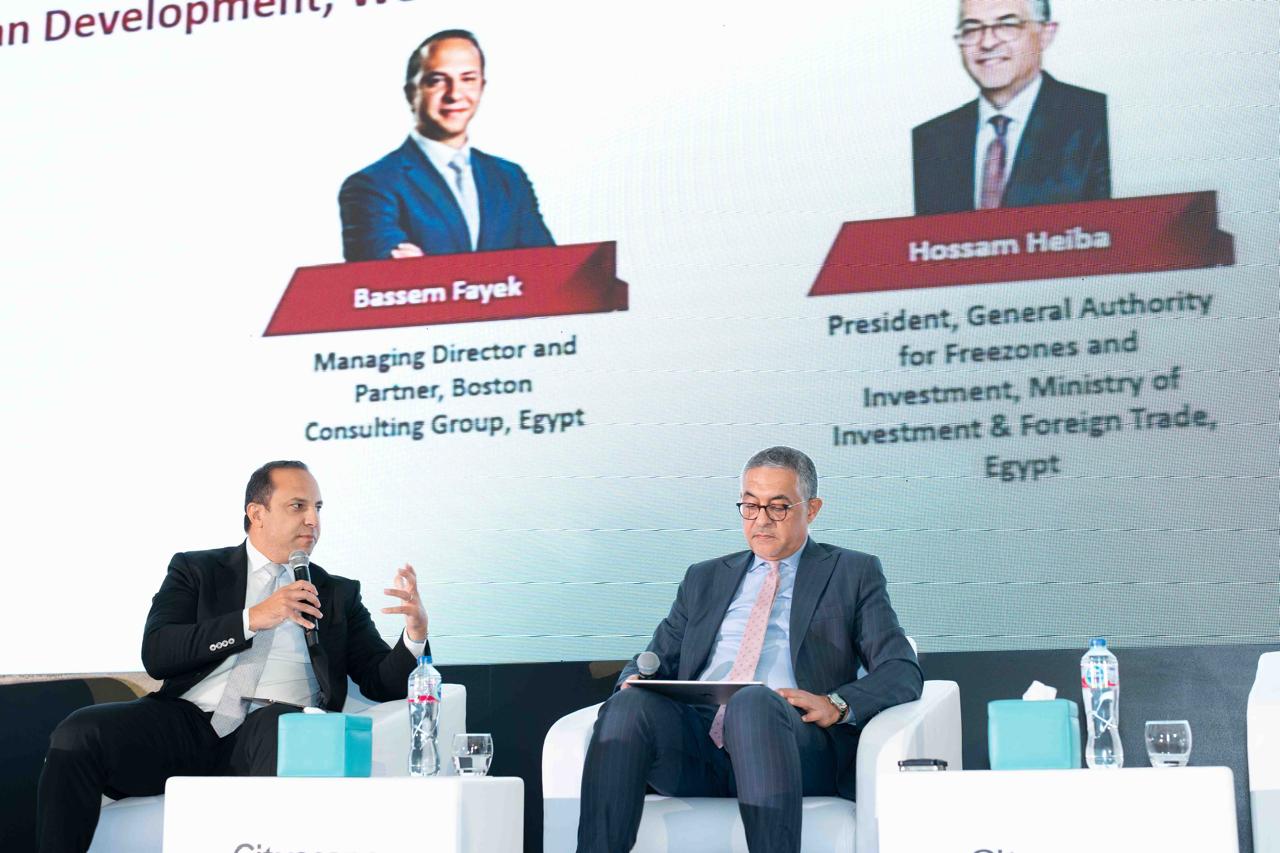
Discussions also focus on innovation and urban development in the New Administrative Capital and the Ras El
Hekma project—the largest foreign direct investment in Egypt’s history. Other sessions explore untapped financing tools, integration between tourism and hospitality with real estate, PropTech trends, fractional ownership, and emerging opportunities in retail real estate. Together, these discussions lay the groundwork for a forward-looking roadmap for Egypt’s real estate sector based on diversity, innovation, and sustainability.
Cityscape Egypt 2025 Exhibition officially opens tomorrow, September 24, and runs until September 27 at the Egypt International Exhibitions Center (EIEC) in New Cairo. Leading real estate developers will gather to showcase their latest projects. This year’s edition will feature a new International Pavilion with participation from global developers, further solidifying Cityscape’s position as a premier regional and international event.
The event will also feature Cityscape Talks, which include panel discussions and interactive workshops covering the best individual real estate investment opportunities, the future of the real estate sector, key market trends such as sustainability and smart cities, and the latest real estate products on the Egyptian market, including hotel units and fractional ownership.
Cityscape will also host the Egypt PropTech Challenge, in partnership with 500 Global, and will offer attendees an exceptional opportunity to network with over 80 local and international developers and explore more than 1,000 diverse projects, ranging from residential, commercial, and administrative units to smart and sustainable city developments. The exhibition is expected to attract over 40,000 visitors, including local and regional investors, entrepreneurs seeking new partnerships, and individuals interested in purchasing residential units.








